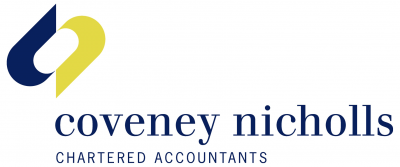Starting your own business is a thrilling experience, but it comes with its fair share of responsibilities, particularly in the realm of taxation and tax compliance.
Remaining compliant is an essential aspect of running a startup, and steering clear of tax-related pitfalls is crucial to avoid incurring penalties. To assist you on this tax compliance journey, we have compiled some valuable tips that will equip you with the knowledge and confidence you need to navigate the complexities of business taxation.
1. Understand your business structure
The first step is to gain a comprehensive understanding of your business structure, as your tax obligations hinge significantly on the type of business you operate. Broadly speaking, sole traders are subject to income tax, whereas limited companies are liable for corporation tax.
2. Register promptly for taxes
Once your business is up and running, it’s vital not to delay your tax registrations. Procrastination could lead to forgetfulness or errors during a rushed registration process, which may result in fines.
Sole traders need to inform HMRC about their self-employed status, and companies must register for corporation tax. Depending on your revenue, you may also need to register for VAT, a topic we will delve into shortly.
3. Meticulous financial record-keeping
Accurate financial records are the backbone of tax compliance. Whether you choose accounting software, traditional bookkeeping methods or an expert accountant, maintaining organised records of income, expenses, and receipts is crucial.
What’s more, not only will good filing make your taxes easier to work out and pay, but it also provides a clear picture of your business’s financial health.
4. Understanding allowable expenses
New businesses can benefit from allowable expenses, which are purchases you make expressly for business purposes. Eligible expenses can then be deducted from your income figure before a tax charge is applied, resulting in a reduced taxable income and lower tax bill.
5. Registering for VAT
For businesses with a turnover exceeding the VAT registration threshold (currently £85,000), VAT registration is mandatory. If you anticipate that your turnover will exceed this threshold in the next 30 days, you also need to register. You’ll then have to charge VAT on your products and services, file a VAT tax return and pay the money to HMRC.
It is worth noting that VAT-registered businesses can explore various VAT schemes to simplify the filing process. For tailored advice on what suits your business best, consult your accountant.
6. Plan for taxes throughout the year
Rather than scrambling at the eleventh hour, it is imperative to plan for taxes throughout the year. This approach will afford you the luxury of focusing on your business activities, safe in the knowledge that your tax returns have been meticulously handled, leaving no room for inaccuracies.
7. Leveraging technology for efficiency
Make sure to take advantage of every tool at your disposal, including technology, to streamline your tax processes. Accounting software, for example, can automate many tasks, from tracing expenses to generating financial reports. This not only saves you time but also minimises the risk of errors in your financial records.
8. Seek professional advice
Tax regulations can be difficult to get a hang of, even for a business veteran. So, do not hesitate engaging the services of an accountant or tax adviser who specialises in small business to provide valuable insights into your tax situation.
They’ll keep you compliant and guide you through various tax schemes to try and save you some money.
Need an accountant? Get in touch with us. We are here to support you in your journey towards business success.

